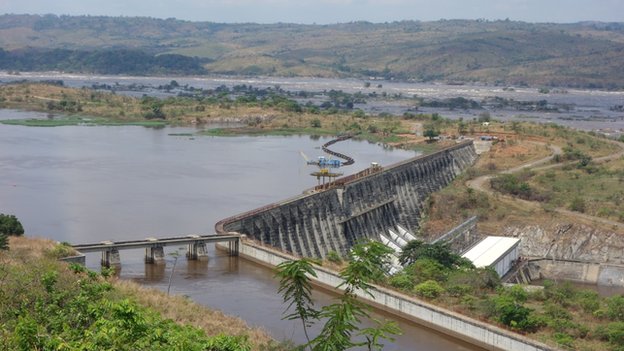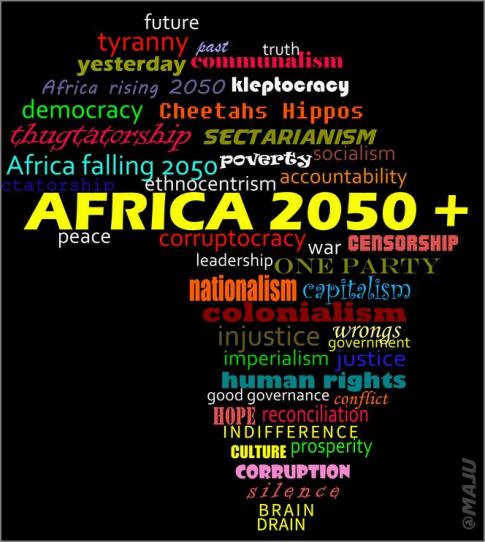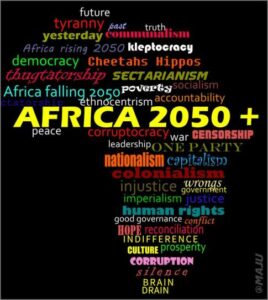Capacity still the missing link
May 06, 2016
The final day of the Capacity Development Forum closed in Harare, Zimbabwe, with a call for a greater commitment and closer collaboration amongst partners and member states.
Delegates at the 3rd Capacity Development Forum in Harare
HARARE, Zimbabwe, 6 May 2016,-/African Media Agency (AMA)/- The African Capacity Building Foundation (ACBF), organisers of the Forum and celebrating 25 years, was widely recognised by delegates, among them African Ministers, heads of continental bodies, ACBF partners and Board members, private and public sector officials, for its contribution to helping implement the continent's development agenda. Participants unanimously agreed that capacity is still the missing link for the continent to successfully meet its socioeconomic transformation targets. And the ACBF has a central role to play to help meet these critical capacity needs.
Participating in the opening panel, Patrick Chinamasa, ACBF Governor for Zimbabwe and Minister of Finance and Economic Development, stressed the importance of developing one's own capacity to enable Africans to develop homegrown solutions. Taking on solutions developed by outsiders, he argued, who did not understand the context nor the environment of one's country as well as one does, will never lead to successful development.
Ownership is key because “carrying over agendas that are not yours is not sustainable” he said. Central to any successful development agenda was knowledge, skills and experience.
In her keynote address, Dr Hespina Rukato, former Deputy CEO of the New Partnership for African Development (NEPAD), implored African governments to adopt a more integrated approach to socioeconomic development and transformational change, saying: “We must overcome the silo mentality that limits scale”, adding, “we need to capitalise on existing synergies”. On developing a sense of urgency in delivering continental capacity building initiatives, she said: “What's missing for me is Agenda ‘now, now'. Where is the Agenda for today?”
During the close of the Forum, Executive Secretary of the African Capacity Building Foundation, Professor Emmanuel Nnadozie, reiterated the importance of the continental institution and the role it plays, as the fourth major development institution in Africa, alongside the African Union, the Economic Commission for Africa and the African Development Bank. “The ACBF has a clear comparative advantage” he said, “be it our experience, our understanding of realities on the ground and of course our expertise in how to build capacity. We have aligned our interventions with national and continental priorities and developed programmes to deal with the most urgent capacity gaps – not only development of skills, but retaining, harmonising and utilising those skills.”
However, Nnadozie said that it was a two-way relationship and he called for greater collaboration with the member states, especially in the form of political and financial commitment. “The right hand and left hand need to help each other out in order to move forward.”
Minister Chinamasa went on to remind participants that transformative change was not an event but a process. This message was made throughout the three-day Forum: capacity building is a long-term initiative and a collective responsibility. “It is now or never, we don't have the luxury to waste time anymore” said the Vice President of Zimbabwe, H.E. Phelekezela Mphoko, in a statement.
ACBF will be holding a pledging conference in Abidjan at the end of June, hosted by the government of Cote d'Ivoire, where it will launch its next 5-year plan. Last year, 2015, was a record year in terms of African government contributions. It is important to keep honouring one's engagements, according to Nnadozie, as contributions can help leverage more funding to help achieve a skills revolution.
Africa still faces the task of addressing some major challenges, and capacity remains the missing link in solving these challenges. It is only once these skills have been built that Africans can truly be in the driving seat.
Distributed by African Media Agency (AMA) on behalf of The African Capacity Building Foundation (ACBF).
For more information, please contact:
Susan Mwiti
Email: s.mwiti@acbf-pact.org
Audrey Mpunzwana
Email: a.mpunzwana@icpublications.com
Note to editors
About the African Capacity Building Foundation
Established in 1991, ACBF builds human and institutional capacity for good governance and economic development in Africa. To date the Foundation has empowered people in governments, parliaments, civil society, private sector and higher education institutions in more than 45 countries and 6 regional economic communities. ACBF supports capacity development with grants, technical assistance and knowledge across Africa. The establishment of ACBF was in response to the severity of Africa's capacity needs, and the challenges of investing in indigenous human capital and institutions in Africa. ACBF interventions are premised on four principles: the centrality of capacity to the development process in Africa; the critical role of a partnership and demand driven approach in tackling capacity challenges; African ownership and leadership in the capacity development process; and a systematic, sequenced and coordinated approach to the capacity development process.
For further information go to: www.acbf-pact.org
The post Capacity still the missing link appeared first on African Media Agency.
Source:: http://amediaagency.com/capacity-still-the-missing-link/

















